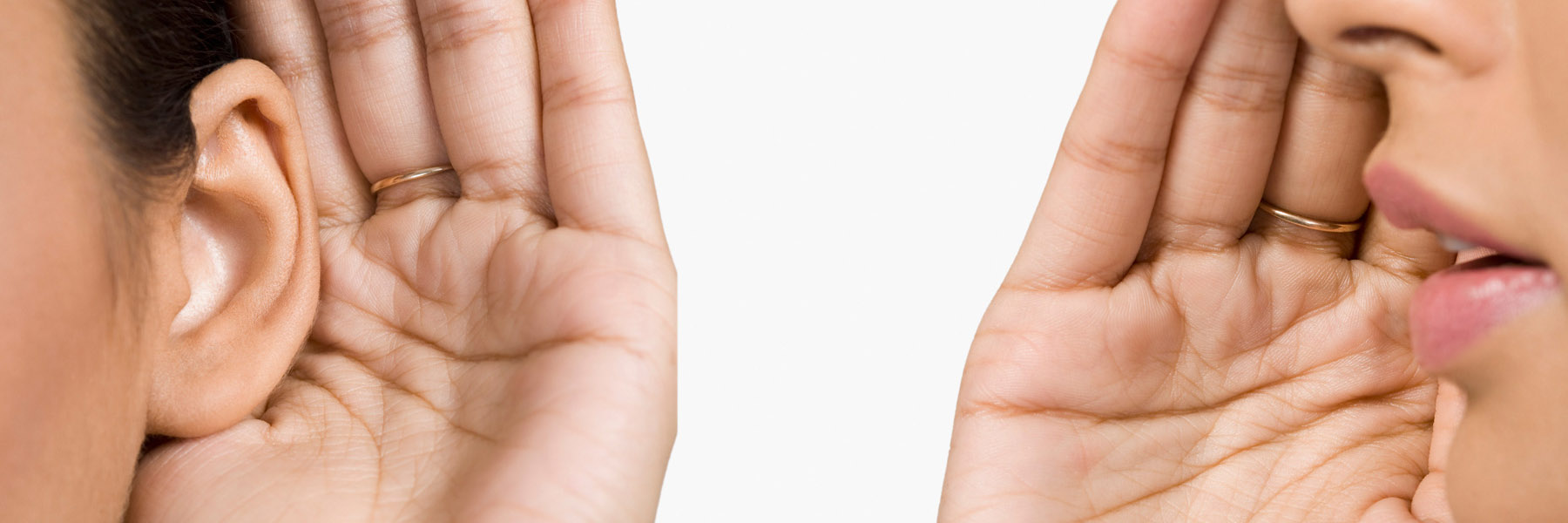Is Gossip Good For You?

So did you hear about…
These words are the interlude to plenty of conversations. As social animals, we like to connect through stories, and many of those tales involve others.
A study recently published in the journal Social Psychological and Personality Science revealed that most of us spend almost an hour a day — 52 minutes, to be exact — gossiping. While the idea that we’re spending so much time badmouthing others might raise your hackles, you might want to tune in to the best part of the study.
Most of those 52 minutes are actually spent sharing harmless details about everyday happenings. No trash-talking your brother-in-law. No spreading rumors about your boss’s imminent departure. Instead, we’re sharing run-of-the-mill stories about our lives, such as a mother’s illness or a child’s new braces.
Researchers reached this conclusion by analyzing snippets of conversations from people who had agreed to wear a portable recording device for two to five days. They discovered that people love to talk to each other — and that what they share is rather…well, rather humdrum.
Dr. Philip D. Harvey, director of psychology at the University of Miami Health System, says the study’s results can be misleading. “Their definition of gossip is so broad that it includes almost any conversation anyone might have,” he says. “It’s pretty much every social interaction, such as a discussion between a professor and a student about a historical figure mentioned in class.”
Gossip, he points out, is traditionally defined as tattling sensational or negative details about someone who is not present to defend himself. People participate in such conversations for a variety of reasons. Harvey ticks them off: low self-esteem, jealousy, validation, refocusing attention away from the speaker, and enhancing their own position within a group.
Gossip does serve a purpose.
A 2014 Psychological Science study found that members of a group cooperate more when they gossip with each other. Other studies claim that gossip can inspire self-improvement. Evolutionary psychologists speculate that gossip is a deeply rooted human instinct. It keeps group members in line, promotes cohesiveness, informs us about both the teller and the story protagonist, and helps a newcomer be socialized into the group. Some scholars even say that, from an evolutionary perspective, we’re wired to gossip since it can give us information that we use to protect ourselves. As Dr. Harvey points out, “Verbal communication is the one feature that separates humans from other primates, so conversing is intrinsically human.”
But the effects of gossip can be complicated.
Malicious gossip has damaged reputations permanently. Therefore, it’s only natural that when we think of someone gossiping, we imagine unpleasant outcomes. It’s that damaging connotation that mostly concerns Dr. Harvey, who has studied cyberbullying among adolescents. In a study, he and colleagues conducted of kids in acute inpatient psychiatric units, 20 percent had been victimized by cyberbullying immediately prior to their admission. Though these cyber conversations happen on social media, those adolescents were found to have experienced “higher levels of lifetime emotional abuse” than non-bullied children. This suggests that their experiences are actually being repeated by being bullied by their peers.
Cyberbullying is not unlike gossip at school or workplace, where the rumor mill and negative tone can influence a person’s well-being permanently. Nevertheless, Dr. Harvey says the study about the 52-minutes of gossiping has some encouraging points.
“In general the population is focused not on negativity, but on the neutral exchange of information,” Harvey says. “That’s good news.”

Ana Veciana-Suarez, Guest Columnist
Ana is a regular contributor to the University of Miami Health System. She is a renowned journalist and author. She has worked at The Miami Herald, The Miami News, and The Palm Beach Post. Visit her website at anavecianasuarez.com or follow @AnaVeciana on Twitter.
Tags: cyberbullying, Dr. Philip Harvey, gossip, psychology
